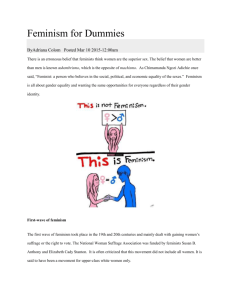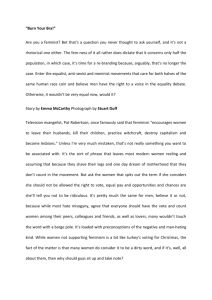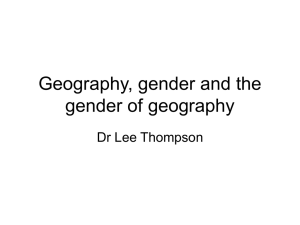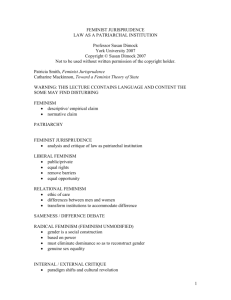0495802662_215422
advertisement
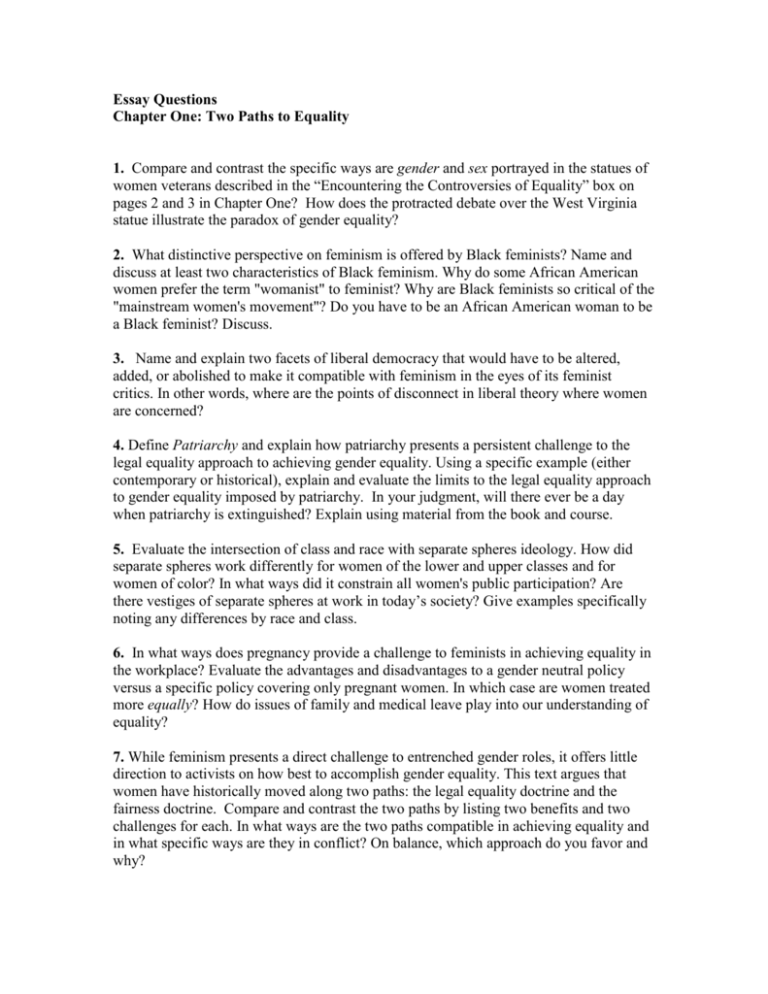
Essay Questions Chapter One: Two Paths to Equality 1. Compare and contrast the specific ways are gender and sex portrayed in the statues of women veterans described in the “Encountering the Controversies of Equality” box on pages 2 and 3 in Chapter One? How does the protracted debate over the West Virginia statue illustrate the paradox of gender equality? 2. What distinctive perspective on feminism is offered by Black feminists? Name and discuss at least two characteristics of Black feminism. Why do some African American women prefer the term "womanist" to feminist? Why are Black feminists so critical of the "mainstream women's movement"? Do you have to be an African American woman to be a Black feminist? Discuss. 3. Name and explain two facets of liberal democracy that would have to be altered, added, or abolished to make it compatible with feminism in the eyes of its feminist critics. In other words, where are the points of disconnect in liberal theory where women are concerned? 4. Define Patriarchy and explain how patriarchy presents a persistent challenge to the legal equality approach to achieving gender equality. Using a specific example (either contemporary or historical), explain and evaluate the limits to the legal equality approach to gender equality imposed by patriarchy. In your judgment, will there ever be a day when patriarchy is extinguished? Explain using material from the book and course. 5. Evaluate the intersection of class and race with separate spheres ideology. How did separate spheres work differently for women of the lower and upper classes and for women of color? In what ways did it constrain all women's public participation? Are there vestiges of separate spheres at work in today’s society? Give examples specifically noting any differences by race and class. 6. In what ways does pregnancy provide a challenge to feminists in achieving equality in the workplace? Evaluate the advantages and disadvantages to a gender neutral policy versus a specific policy covering only pregnant women. In which case are women treated more equally? How do issues of family and medical leave play into our understanding of equality? 7. While feminism presents a direct challenge to entrenched gender roles, it offers little direction to activists on how best to accomplish gender equality. This text argues that women have historically moved along two paths: the legal equality doctrine and the fairness doctrine. Compare and contrast the two paths by listing two benefits and two challenges for each. In what ways are the two paths compatible in achieving equality and in what specific ways are they in conflict? On balance, which approach do you favor and why? 8. Identify and explain three defining features of “third wave feminism.” Compare and contrast third wave feminism with at least two other conceptions of feminism. How does third wave feminism most differ? What makes third wave feminism appealing to young women today? In your judgment, is third wave feminism most compatible with the legal equality doctrine or with the fairness doctrine? Explain using as many examples as possible.

